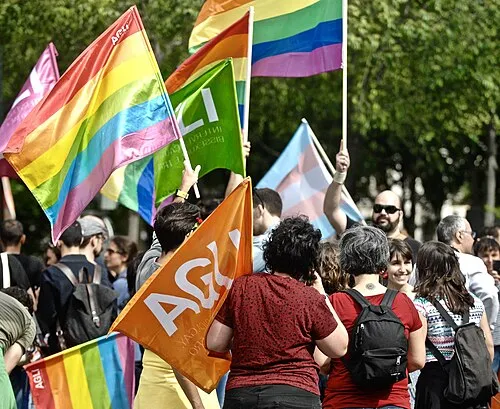
Revolution Day in North Macedonia: A Commemoration of Historical Significance
Revolution Day, celebrated on October 11th, holds a paramount place in the heart of the people of North Macedonia. This day marks the beginning of the National Liberation War against the Axis powers during World War II in 1941, a pivotal event that shaped the nation’s historical path and identity.
Historical Background
Revolution Day commemorates the armed uprising initiated by the Macedonian people against the oppressive fascist regimes. The struggle began in the town of Tetovo and soon spread throughout the region, uniting diverse ethnic groups in their quest for freedom. It was a significant turning point that led to the establishment of the Socialist Republic of Macedonia, a constituent unit of the former Yugoslavia, and ultimately to North Macedonia’s independence in 1991.
Significance of Revolution Day
This day is not just a remembrance of past struggles but an affirmation of national identity and unity. Revolution Day celebrates the values of freedom, democracy, and respect for human rights, echoing the aspirations of the Macedonian people who fought bravely for their future. It serves as a reminder of the sacrifices made for independence and fosters a sense of belonging among citizens, irrespective of their ethnic backgrounds.
How Revolution Day is Celebrated
Revolution Day is observed with various events across North Macedonia. The day begins with ceremonious wreath-laying at memorial sites, honoring the fallen heroes who lost their lives in the fight for freedom. Various cultural programs, including exhibitions, parades, and concerts featuring traditional Macedonian music, are organized in key cities like Skopje, Bitola, and Veles. Educational institutions participate by conducting discussions and activities that deepen the understanding of the historical significance of this day.
Modern Implications and Values
In contemporary North Macedonia, Revolution Day symbolizes resilience and hope. The day is not only a remembrance of past victories but also an opportunity to foster dialogue and cooperation among the country's diverse ethnic communities. In a time of increasing global challenges, emphasizing the values of Revolution Day can encourage unity and collective efforts toward addressing social issues, promoting tolerance, and fostering peaceful coexistence.
Global Recognition and International Relations
As North Macedonia continues to strengthen its international presence and aspirations, Revolution Day is also a platform to raise awareness about the country's history and culture on a global scale. The day often draws the attention of foreign dignitaries and diplomats, fostering better international relationships while cherishing the lessons learned from the past.
Conclusion
Revolution Day in North Macedonia is much more than a historical commemoration; it is a celebration of courage, identity, and unity among its people. It stands as an enduring reminder of the struggles faced in the past and the hope for a peaceful and prosperous future. As citizens come together to honor their history, they also reinforce the bonds that unite them for generations to come.






